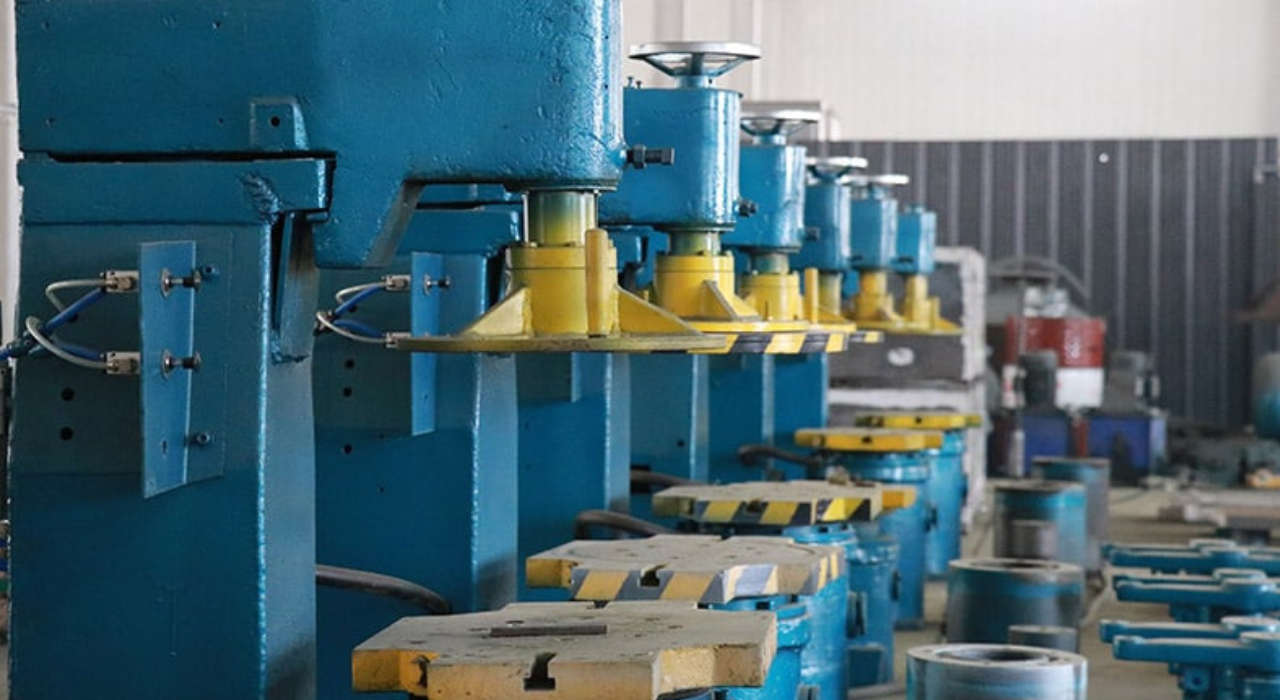Flaskless molding machines play an important position in modern-day foundries, revolutionizing mold production with their efficiency and precision. Unlike conventional techniques, these machines dispose of the need for a flask and cope, streamlining the molding technique with the aid of compacting sand across the pattern directly at the molding machine desk. This method not best saves time but additionally complements accuracy, ensuring steady mold.
Flaskless molding machines contribute to increased productivity and reduced labor costs. They enable foundries to fulfill stringent, excellent requirements while adapting to diverse casting requirements effectively. By minimizing guide exertions and optimizing mildew production, flaskless molding machine improve general foundry efficiency and competitiveness within the worldwide marketplace. The significant use of flaskless molding machines underscores their crucial position in modernizing casting procedures, improving productivity, and ensuring sustainable growth within the enterprise.
Safety Considerations When Operating a Flaskless Molding Machine
This article outlines important safety considerations for working flaskless molding machines, addressing capacity dangers and fine practices to mitigate them.
Personal Protective Equipment
Operators ought to always wear suitable private protective equipment (PPE) while running flaskless molding machines to ensure their safety. Important PPE includes safety glasses to shield eyes from dust and particles, warmness-resistant gloves for coping with hot surfaces, metallic-toed boots to protect feet, and hearth-resistant apparel to defend the frame from warmth and sparks. Moreover, listening to safety is essential in noisy environments to prevent listening to damage. Adhering to PPE pointers is critical for minimizing injury risks.
Machine Guarding
Machine guarding is vital to save you from accidental contact when transferring components of flaskless molding machines. Guards should be installed in all areas where there may be a chance of entanglement, crushing, or reducing. Those guards should be maintained frequently and, by no means, eliminated or bypassed. Safety interlocks must be in place to mechanically stop the gadget if a guard is opened or eliminated, ensuring operator safety and preventing accidents at some point in operation.
Emergency Stop Mechanisms
Flaskless molding machines have to be ready with readily available emergency forestall mechanisms, inclusive of buttons or pull cords, to ensure a short shutdown in case of emergencies. Operators should study the right use of those mechanisms and understand while to spark them. Everyday checking out and preservation of emergency forestall systems are essential to make sure they feature successfully, supplying a reliable approach to halt the machine and prevent accidents or injuries during unexpected conditions.
Regular Maintenance and Inspection
Everyday preservation and inspection are vital for the secure operation of flaskless molding machines. Establish an ordinary schedule to check and provide components such as hydraulic structures, electrical systems, and shifting components. Directly deal with any signs and symptoms of wear and tear, damage, or malfunction to save your injuries. Normal preservation ensures the device operates efficaciously, reduces downtime, and enhances protection by identifying capacity issues before they result in failures or accidents.
Safe Handling of Materials
Safe handling of materials in the molding process is essential to preventing exposure to dangerous substances. Operators need to be acquainted with material safety statistics sheets (MSDS) and follow the right management and garage strategies. Utilizing automatic structures for material transport can lessen manual dealing with risks. Private defensive equipment (PPE) must be worn to decrease exposure, and spills have to be cleaned up without delay. Making sure secure material coping with practices allows protection operators and preserves safe working surroundings.
Proper Ventilation
Right ventilation is vital inside the molding procedure to govern dirt and fumes that can be dangerous if inhaled. Put into effect nearby exhaust ventilation (LEV) to capture contaminants on the supply, and make certain general airflow continues air best all through the workspace. Frequently check out and maintain airflow systems to ensure performance. Through adequate ventilation, the chance of respiration problems and exposure to dangerous materials is minimized, making the working environment healthier and more secure for operators.
Fire Safety
Fire safety is paramount when working with flaskless molding machines due to excessive temperatures and flammable substances. Fire extinguishers have to be effectively available, and operators need to gain knowledge of their use. The work region ought to be kept clean and freed from combustible materials, with the right storage for flammable materials. Normal fire drills should be performed to ensure readiness. Enforcing stringent fireplace protection measures enables prevents fires and guarantees a speedy, powerful response if one occurs.
Hydraulic Safety
Hydraulic safety is important in flaskless molding machines due to high-strain systems. Operators ought to be trained to recognize signs of hydraulic system problems and know how to appropriately depressurize systems before preservation. Adherence to lockout/tagout approaches all through upkeep is crucial to saving you from injuries. By maintaining hydraulic systems properly and following protection protocols, operators can mitigate risks and ensure the secure operation of the device.
Sum Up
Operating flaskless molding machines properly calls for a complete method that consists of proper training, the use of PPE, regular preservation, and adherence to protection protocols. By knowing the dangers and imposing these protection concerns, operators can significantly reduce the likelihood of injuries and accidents, ensuring more secure and efficient production surroundings.


